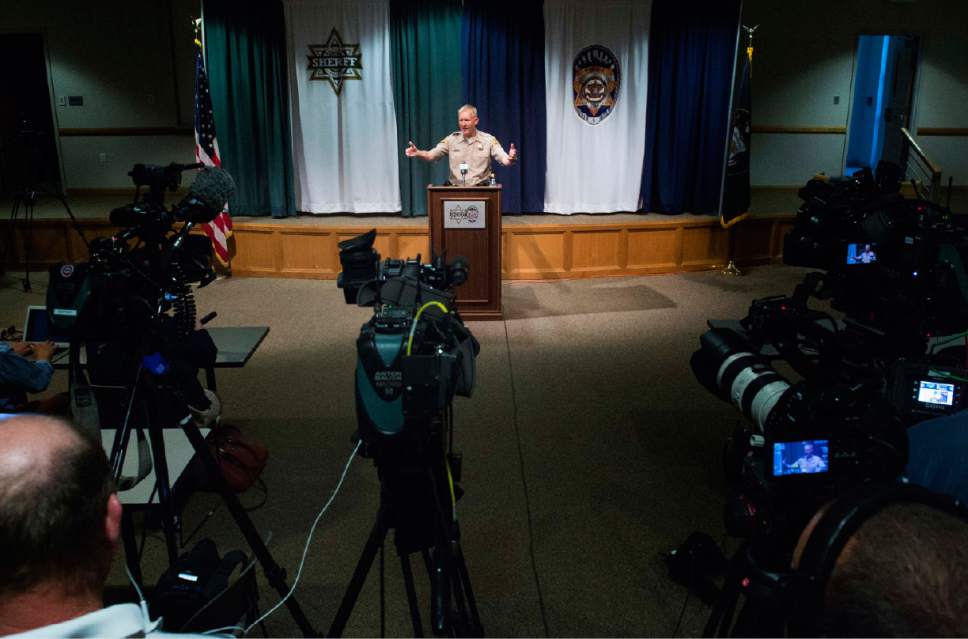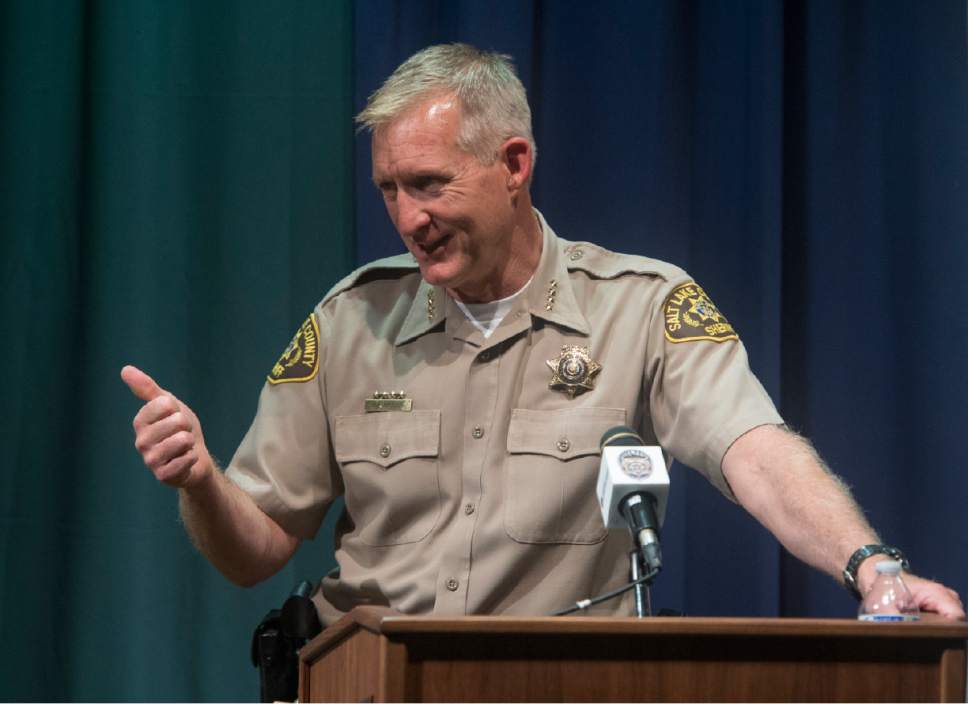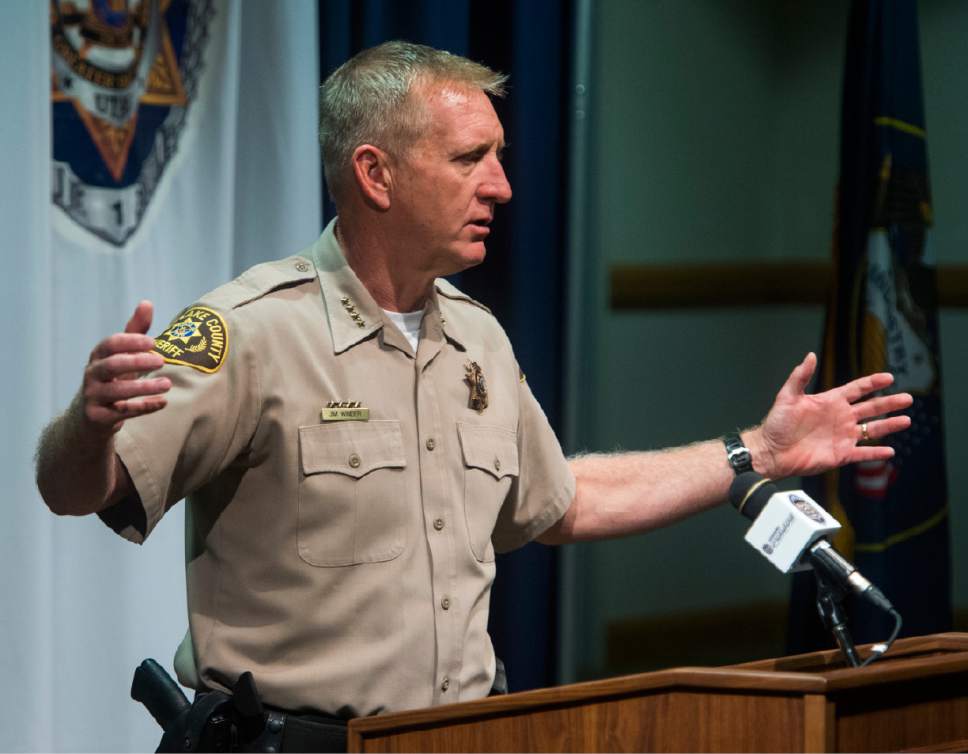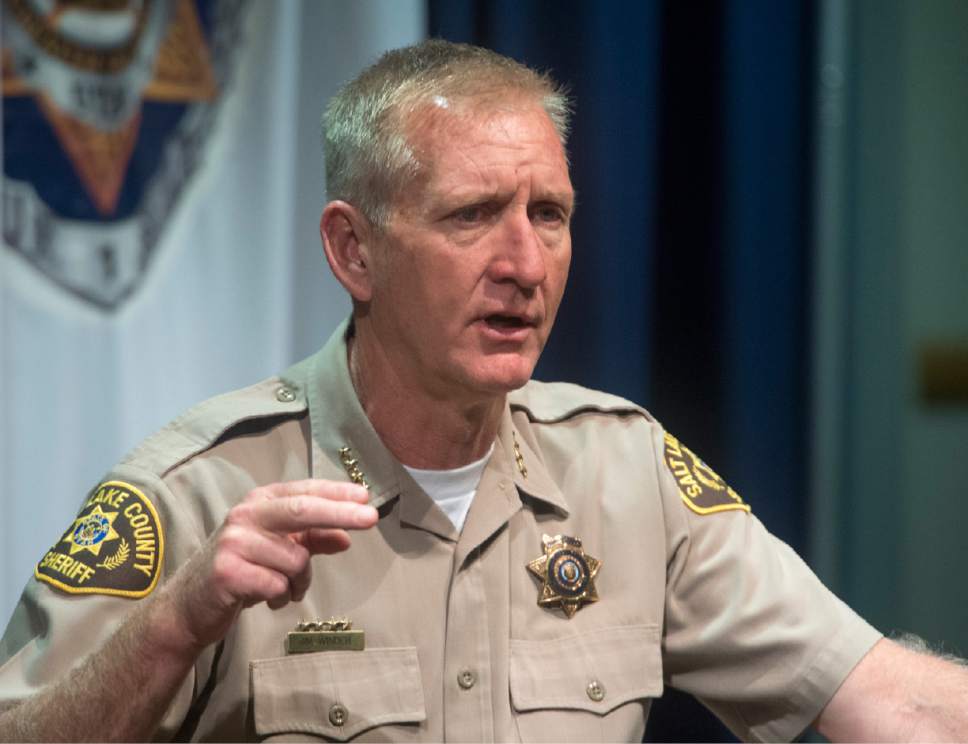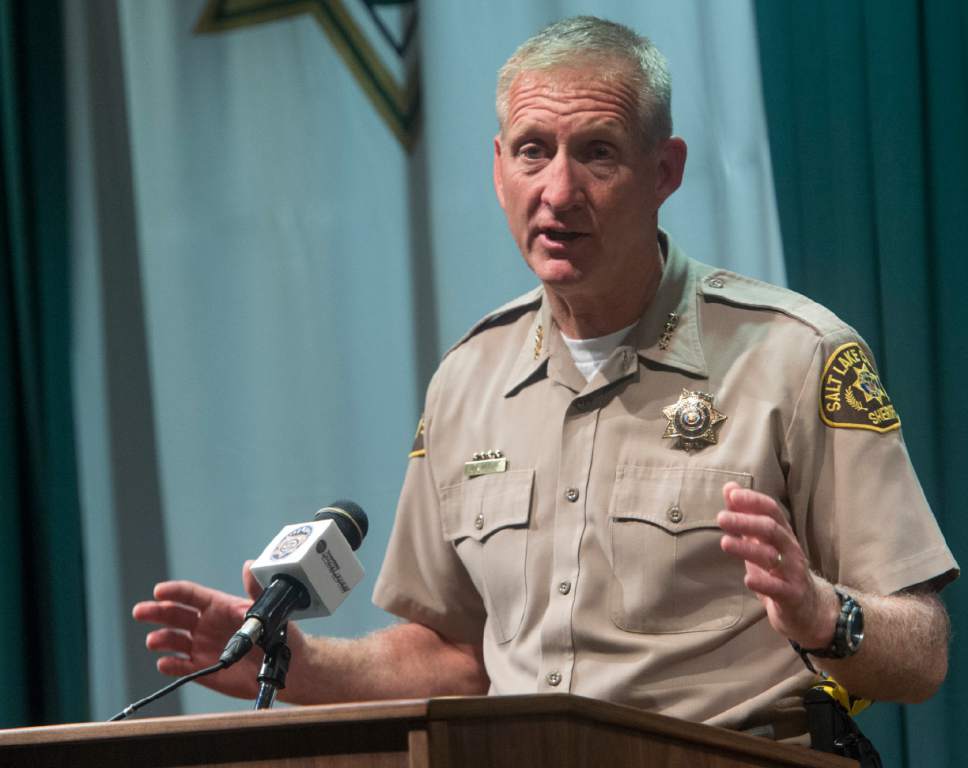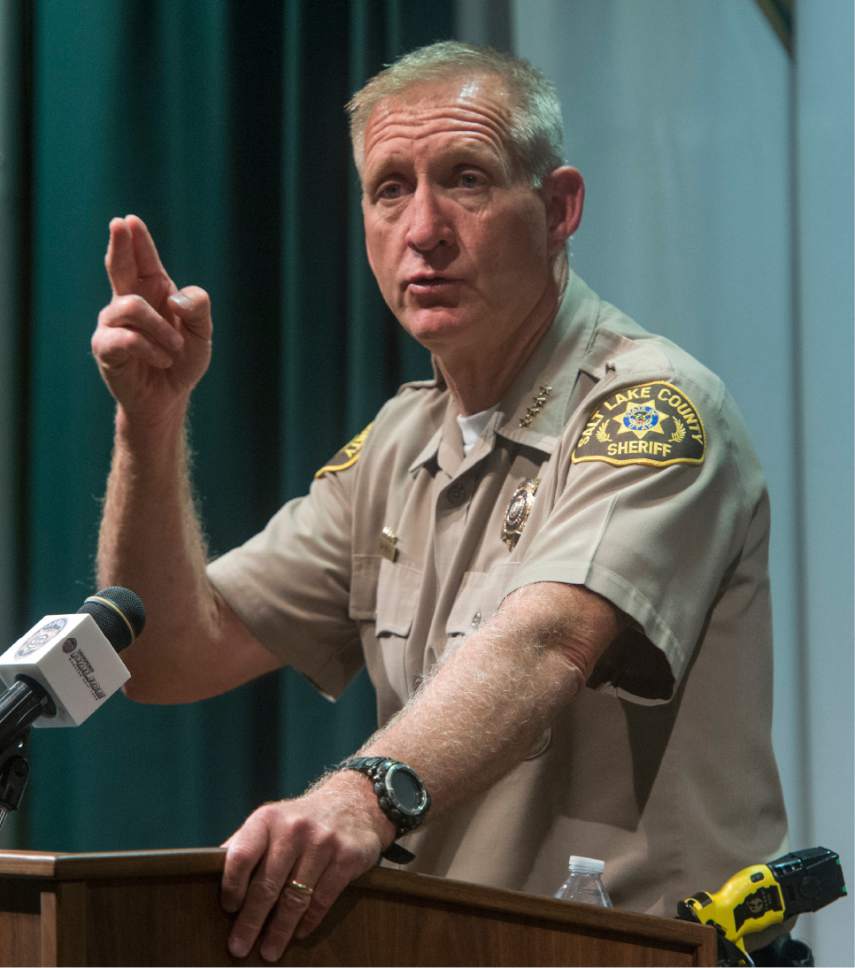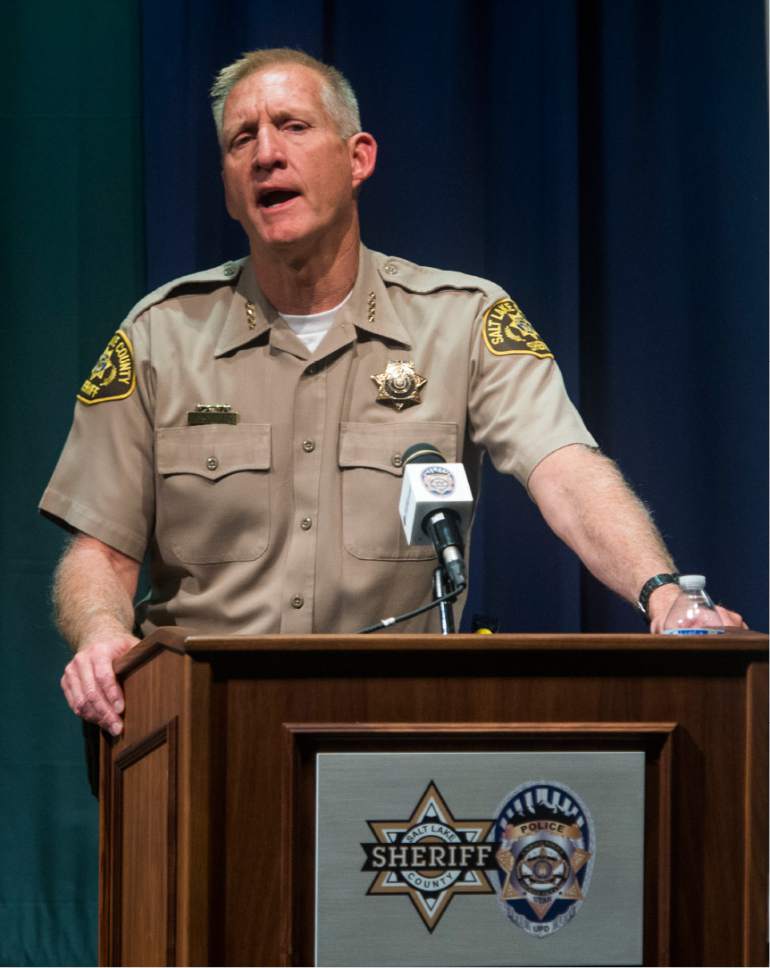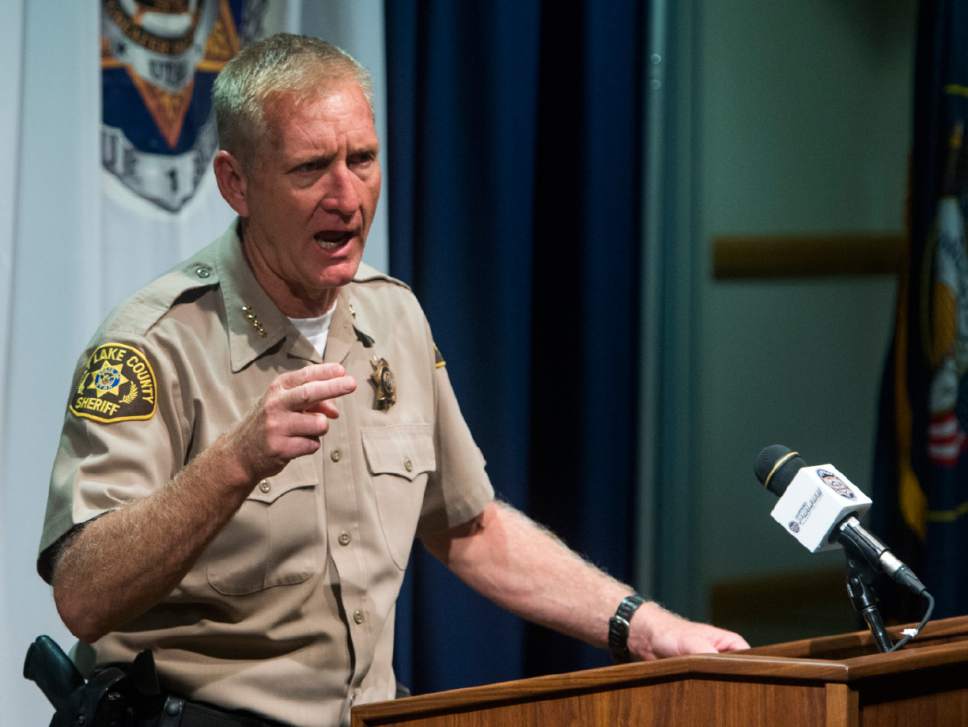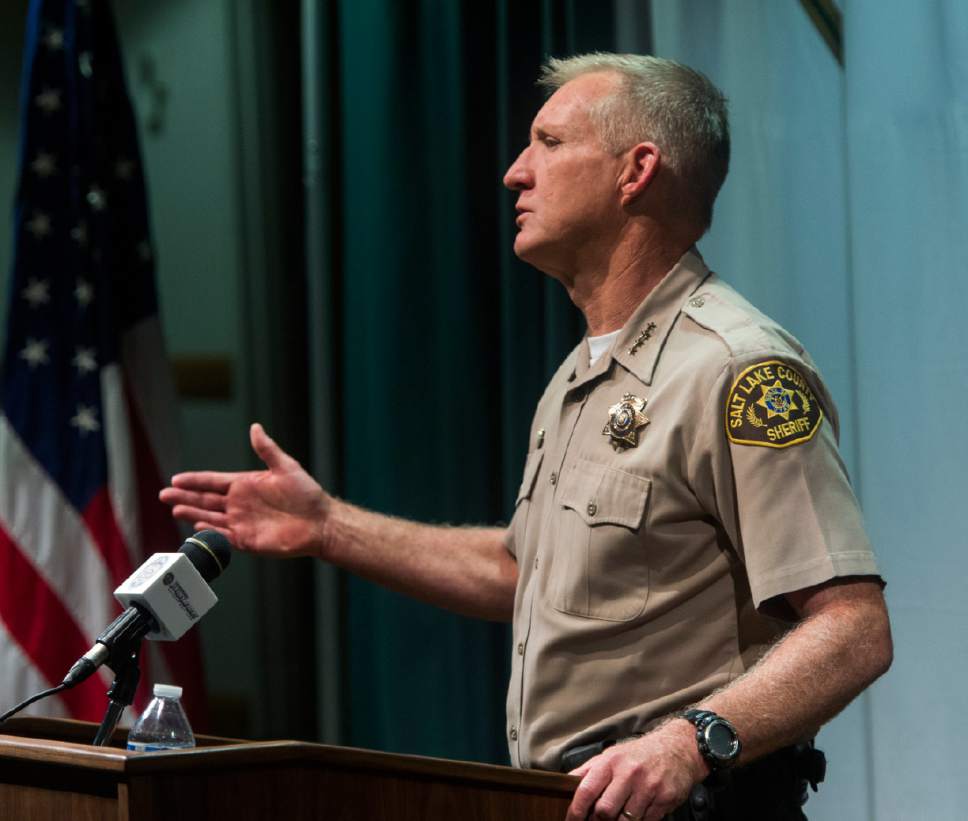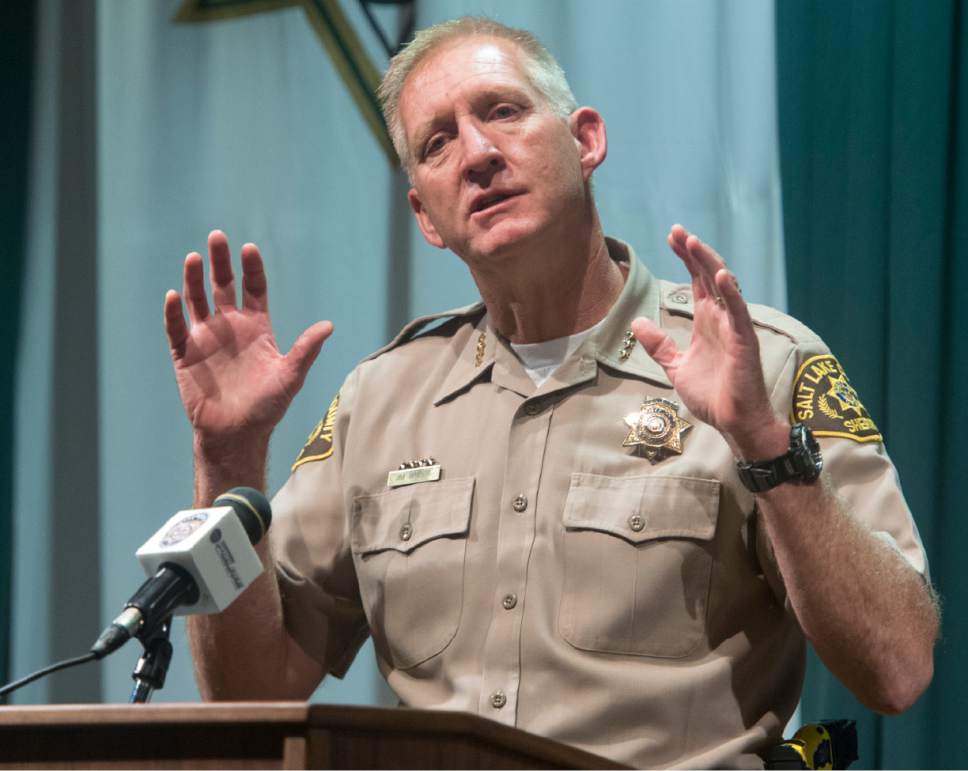This is an archived article that was published on sltrib.com in 2017, and information in the article may be outdated. It is provided only for personal research purposes and may not be reprinted.
Salt Lake County Sheriff Jim Winder said Tuesday that if the Moab City Council agrees, he'll step down from his position leading one of the state's largest police forces and accept an offer to become the city's police chief within two months.
Moab Mayor Dave Sakrison offered the sheriff the position after Winder became a late entry into the city's seven-month search for someone to lead its police force, and a city councilman said he'll likely be approved by mid-June.
Winder, a three-term sheriff of Utah's most populous county, would leave after years of struggling to manage a crowded jail and, more recently, amid an imperiled relationship with Salt Lake City's police chief and mayor, which he indicated was at least part of his reason to depart.
"The idea of taking a large stone and rolling it perpetually uphill, after a while, it will wear on you," Winder said at a news conference Tuesday, repeating an analogy to describe his relationship with Salt Lake City officials amid ongoing efforts to make a visible dent in the blight in the Rio Grande District.
He said his ideas have already been welcomed and face less resistance in Moab.
"Going down there is a breath of fresh air that I am so excited for, that I can't even begin to tell you," Winder told The Salt Lake Tribune. "It's healthy for me, it's healthy for them, it's healthy for the communities."
Winder would go from being responsible for protecting 1 million urbanites and suburbanites in Salt Lake County to policing a town that gets about that many visitors per year, but has 5,140 full-time residents.
His supporters say Winder was an early backer of criminal justice reform efforts underway at the state, city and county levels.
Winder has been Salt Lake County sheriff since 2006 and has persuaded Salt Lake County's politicians and a few suburban mayors to expand his office.
The regional Unified Police Department was created within the Sheriff's Office in 2010 to take over policing in the county's unincorporated areas and handing over financial and policy decisions to an administrative board. Midvale and Taylorsville opted to fold their police forces into UPD.
Winder also oversees the Salt Lake County jail, and he succeeded in getting the county to reopen the Oxbow jail for use as a treatment facility, which he wants to expand.
"He's a very interesting man in that he's always willing to say, 'This isn't about me and my power. If we can move the dial, I'll cede,' " said Kerri Nakamura, a former county staffer who worked on the effort to create UPD.
Leaving his post overseeing UPD would also free Winder of publicly frayed relationships between him and chiefs of some of the surrounding police forces in Salt Lake County, as well as Salt Lake City's mayor.
Winder's successor — whom, by law, the county's Democratic leadership must pick within a month after his departure — would inherit a full jail and no easy way to make space.
The jail crowding was exacerbated by state-level criminal sentencing reforms aimed at keeping lower-level offenders out of prison. Those changes, leading to more misdemeanors than felonies, have filled Salt Lake County's jail to nearly bursting, county officials say, and Winder would leave town while calling for a tax hike next year to expand the county's two jails.
Winder tried to alleviate crowding by taking county and state money and contracting with remote counties that would accept up to 300 Salt Lake County inmates, an effort he jump-started but that isn't finalized.
The crowding contributed to a breakdown among the sheriff, Brown and other law enforcement officials in the valley.
In response to a full jail, Winder implemented a policy in 2016 to turn away alleged perpetrators of all but the most serious offenses. Brown says the booking restriction has forced his officers to leave people on the street who should have been incarcerated. The two lawmen aren't on speaking terms.
Winder confirmed to The Tribune that he recently sidestepped Salt Lake City police administrators and hand-delivered a memorandum of how patrol officers in downtown Salt Lake City could improve their work amid a visible homelessness problem.
"I also included there several suggestions about cleanup in the Rio Grande area," Winder said. "Because I was sick of it."
Brown said he was busy and couldn't speak for the story, but he has been reluctant to bring the apparent issues with Winder into the public sphere.
Winder also would leave a torn relationship with Salt Lake City Mayor Jackie Biskupski, who was his top administrative assistant before she became mayor.
Winder endorsed Biskupski over incumbent Ralph Becker in her run for mayor. The sheriff and the mayor no longer speak, Winder says, but neither will publicly elaborate on the relationship's breakdown.
While Brown said the two are working to improve communication, Winder said Friday that Salt Lake City was drastically scaling back from a regional gang task force, which he said indicated that the relationship between city and county remains frayed.
Cottonwood Heights Police Chief Robbie Russo, who worked under Winder before the city created its own police force and Russo was picked to lead it, said Brown isn't the only chief with apparent relationship issues with the sheriff.
Russo said Winder hasn't been close with law enforcement groups that discuss issues together.
"He's just intentionally distanced himself from us," Russo said. Winder once put Russo on administrative leave in what Russo calls a response to Winder believing Russo was disloyal by siding with Cottonwood Heights.
"Jim and I have different perspectives on how law enforcement should be done in the valley," Cottonwood Heights Mayor Kelvyn Cullimore said. "He has alienated several of the local police forces by advocating for a regional police force."
Some of Winder's supporters say his separate push for jail expansion would hamper ongoing reform efforts but has come amid intense political pressure.
Winder wasn't "willing to simply stack up individuals and overcrowd the jail beyond its capacity," said David Bennett, a consultant who helped write the county's criminal justice master plan. "What can he do? Shut the front door or kick out the back door. Neither policy works."
Still, city police chiefs have complained that they have not been able to book everyone they want into jail. Winder has said the jail will take anyone suspected of a violent crime, but it has a policy of releasing drug offenders and those accused of low-level crimes who have not yet been sentenced.
Brown says he tracked crime statistics that show officers are leaving offenders on the street who should be in jail. Winder on Tuesday called for a "neutral" study to determine whether that was true, and he conceded that he couldn't say either way.
Winder's departure would lead to jostling within Salt Lake County law enforcement and politics. The county's Democratic Party would select a replacement to serve the remainder of Winder's term through the end of 2018.
While Winder said he would recommend to the Salt Lake County Council someone not interested in being elected in 2018 to replace him, state law leaves the choice entirely out of his hands. The County Council also has a limited say in approving the county Democrats' choice.
Twitter: @TaylorWAnderson
— Reporter Nate Carlisle contributed to this article


